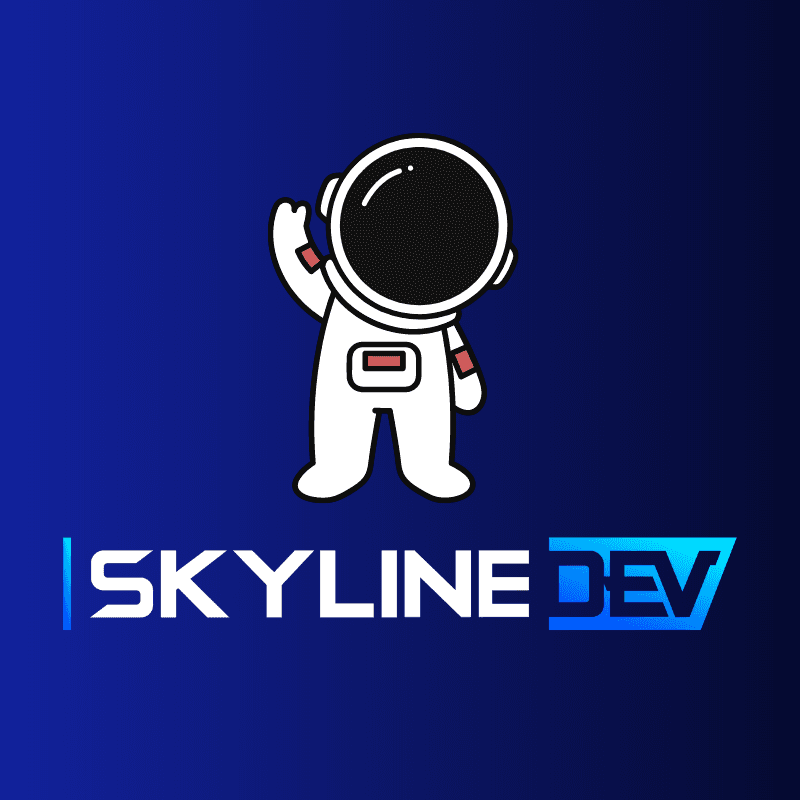7 Strategies to Overcome the Challenges of Implementing Automation in Healthcare Clinics
Dec 6, 2023
In the ever-evolving landscape of healthcare, the promise of automation to enhance operational efficiency and elevate patient care is undeniable. However, the path to implementing automation in healthcare clinics involves deploying efficient workflows to comply with regulatory compliance.
In this blog, we will explore seven strategic solutions designed to address the unique challenges healthcare providers face when integrating automation into their daily operations. These strategic solutions aim not only to streamline processes but also to ensure that clinics harness the full potential of automation while prioritizing patient well-being.
1. Develop a Clear Automation Strategy
Developing a clear automation strategy requires getting a comprehensive understanding of the clinic's current operations and how they can be optimized. This strategic plan should begin with a clear mission statement that sets the tone for the initiative and aligns with the clinic's overall objectives. From there, a detailed assessment of the clinic's workflows is needed to document current workflows, identify bottlenecks that might affect patient experience, careOps, or financial impact, and repetitive data related tasks that can be fully ripe for automation.
Once these areas for improvement are identified, setting clear and achievable goals is the next step. These goals should be:
specific (what exactly is to be automated),
measurable (the metrics for success),
achievable (realistic within the clinic's means),
relevant (aligned with overall business objectives),
and time-bound (with a clear timeline for implementation).
For example, a goal to "reduce patient wait times" is too vague. A better strategy might include automating patient check-ins through a self-service kiosk with a target of reducing wait times by 25% within six months.
2. Engage Stakeholders With Confidence
The success of automation depends on those who are affected by it fully reviewing it and accepting it. This involves creating a forum for dialogue where doctors, nurses, administrative staff, and patients can all contribute their perspectives and suggestions.
By engaging healthcare professionals, clinics can uncover insights into daily operations that may not be immediately apparent to IT specialists or management. These insights can inform how automation tools are designed to interface with users, potentially uncovering opportunities to further streamline operations. For instance, nurses can offer valuable input on how patient information is collected and used, leading to the development of more efficient data entry processes.
Patients, as end-users of some automated systems, such as online appointment scheduling, can provide feedback on user interface design and functionality, ensuring that the system is accessible and easy to navigate for individuals with varying levels of technological literacy. Administrators also play a vital role in managing the change process, and their involvement is key to aligning automation with business objectives and budgeting in particular.
To facilitate this engagement, consider implementing strategies such as feedback surveys and featured demos. These tools provide a structured avenue for stakeholders to express their thoughts, allowing for a well-rounded understanding of their needs. Additionally, incorporating incentives for improvement not only acknowledges their valuable contributions but also nurtures a culture of continuous enhancement and collaboration within the healthcare team. By embracing these engagement strategies, clinics can ensure that the voices of all stakeholders are heard in the design and implementation of automation, creating a resilient foundation for transformative change.
3. Ensure Data Privacy and Security
In the digital age of healthcare automation, ensuring the confidentiality of patient information is critical. A robust security infrastructure serves as the backbone against potential cyber threats, demanding meticulous attention to detail in its construction and maintenance. A robust security infrastructure must include firewalls, intrusion detection systems, and secure data encryption. Regular security assessments and updates to these systems are necessary to guard against evolving cyber threats, and security strategies should also detail how data is stored, accessed, and shared, strictly adhering to HIPAA guidelines and other relevant regulations.
Every staff member, from receptionists to medical practitioners, must understand their role in maintaining data security. This involves recognizing potential phishing attempts, managing passwords securely, and following proper protocols for accessing patient information. Furthermore, privacy must be integrated into the development and implementation of all automated systems. Privacy considerations must not be an afterthought but actually be built into the design of the system, and healthcare clinics should have clear policies and procedures in place, regularly reviewed and updated as necessary.
In essence, safeguarding data privacy and security is not just a compliance requirement; it is a foundational commitment to the trust patients place in healthcare providers. By prioritizing these considerations, clinics fortify their position as custodians of confidential information, instilling confidence in both patients and regulatory bodies alike.
4. Bridging Data and Events with Existing Technologies
In the intricate dance of healthcare automation, the synergy between new and existing technologies is huge. The primary aim here is to create a seamless workflow where data transfer is automated between systems without the need for manual input, thereby reducing the risk of errors and improving efficiency. To achieve this, the clinic must first conduct a thorough audit of their current technological infrastructure to understand the capabilities and limitations of existing systems. The integration process often requires custom solutions, such as developing application programming interfaces (APIs) that allow disparate systems to communicate effectively.
The planning stage should include mapping out all data flows, understanding the points of interaction between different systems, and identifying any potential bottlenecks or data silos that could impede integration. Clinics should have protocols in place for updating systems, managing data backups, and conducting regular system health checks as they go through the integration process.
5. Invest in Effective Training and Education
A comprehensive training program should offer a variety of learning methods, including seminars, hands-on workshops, e-learning modules, and continuous on-the-job training, to accommodate different learning styles and schedules. The curriculum should begin with an introduction to the principles of automation, why it's being implemented, and its benefits, and then progress to more detailed instructions on the operation of specific automated systems. Training also needs to be role-specific needs should be role-specific, addressing the unique ways automation impacts different positions within the clinic.
Beyond initial training, education should be an ongoing effort to keep staff updated on new features and best practices. Clinics should also encourage a culture of continuous learning where staff are motivated to enhance their understanding of automation technologies and their competency in utilizing these systems. Effective training equips staff with the necessary skills and helps mitigate resistance to change by empowering them with knowledge and confidence in the use of new technologies.
Effective training, therefore, serves as more than a knowledge transfer—it is a strategic investment that not only equips staff with the skills necessary for efficient automation utilization but also acts as a powerful antidote to resistance to change. Through education, clinics lay the groundwork for a workforce that not only embraces innovation but propels the clinic towards excellence in the era of healthcare automation.
6. Start Small and Scale Up
This strategic approach allows clinics to beginBeginning with smaller automation projects allows you to test the waters, learn from practical experience, and build confidence among staff and patients. This approach enables a clinic to tackle manageable changes, assess the impact, and refine processes before taking on more complex automation initiatives. Starting small might mean automating a single, simple process, such as prescription refills or appointment reminders. This provides a controlled environment to monitor outcomes, manage any issues, and make improvements.
As each small project proves successful, the clinic can gradually expand the scope of automation, scaling up to include more comprehensive processes such as electronic health records integration or automated patient triage systems. This information can then be used in guiding future projects, ensuring that each subsequent phase of automation builds upon a solid foundation of experience and best practices.
The journey from modest automation projects to more intricate initiatives is not just a trajectory of technological growth but a strategic evolution guided by real-world insights. By embracing this gradual nature, clinics position themselves not as mere adopters of automation but as architects of a transformative and resilient healthcare landscape, where each phase of innovation is informed by the wisdom gained along the way.
7. Partner with Automation Experts
Automation and technology experts bring a wealth of specialized knowledge to the situation, from understanding specific healthcare workflows to knowing just the right technology stack and engineering practice to meet unique needs. Collaboration should begin with the experts conducting a thorough analysis of the clinic's current systems and processes. This allows them to identify the most beneficial areas for automation and to design systems that are both efficient and user-friendly. They can also provide insights into the latest advancements in healthcare technology.
Their experience in managing change can help mitigate the risks associated with transitioning to new systems. Additionally, they can offer ongoing support to ensure that the automation systems continue to function optimally and evolve with the clinic's growing needs. By partnering with experts, healthcare clinics can confidently embrace automation, secure in the knowledge that they have the support and expertise needed to achieve a successful transformation.
By joining forces together with automation experts, healthcare clinics gain more than just technological know-how; they acquire a robust support system and a reservoir of expertise crucial for a successful transformation. This collaborative approach empowers clinics to confidently embrace automation, secure in the knowledge that they are not navigating the journey alone. Together with experts, healthcare providers can embark on a transformative path, where the integration of automation becomes a catalyst for elevated efficiency, improved patient care, and enduring success.
Work With a Partner Who Solves Your Automation Challenges
Overcoming the challenges of automation in healthcare requires innovative technology and a partnership with experts who understand the unique demands of the industry. At Skyline Dev Labs, we specialize in leveraging the magic of AI, architecting robust platforms with modern features, robust automation, and smart data-driven decisions and robust platform development to streamline workflows, bring valuable insights, and deliver personalized experiences.
Our expertise in health tech, data, and workflow automation ensures that your transition to automated systems is smooth and efficient, avoiding common pitfalls and setting you on a path to success. Let us guide you through every step of this transformative process with our comprehensive suite of services. Reach out to Skyline Dev Labs now to craft a bespoke automation solution that propels your healthcare clinic into the future.
Latest Blog





